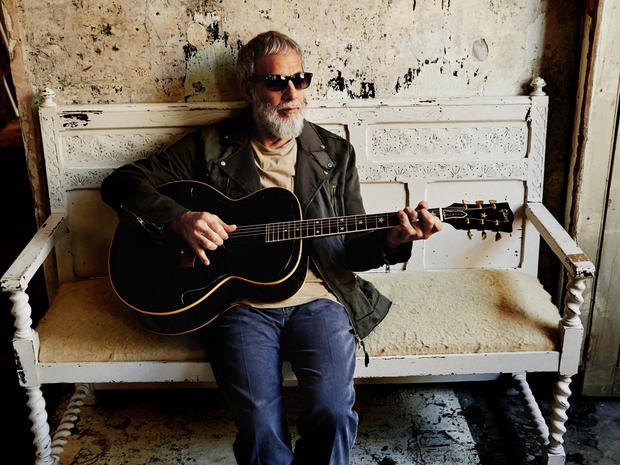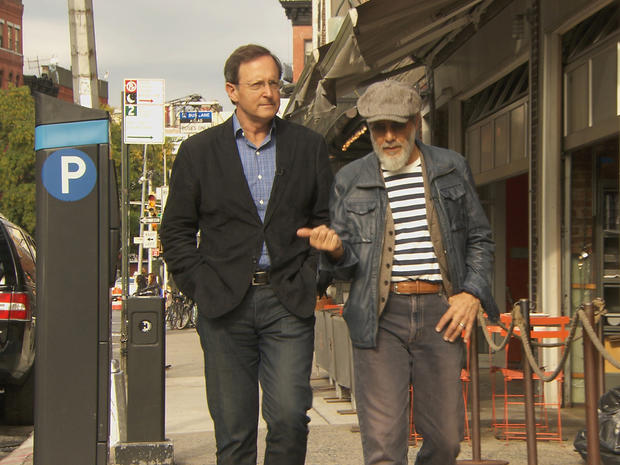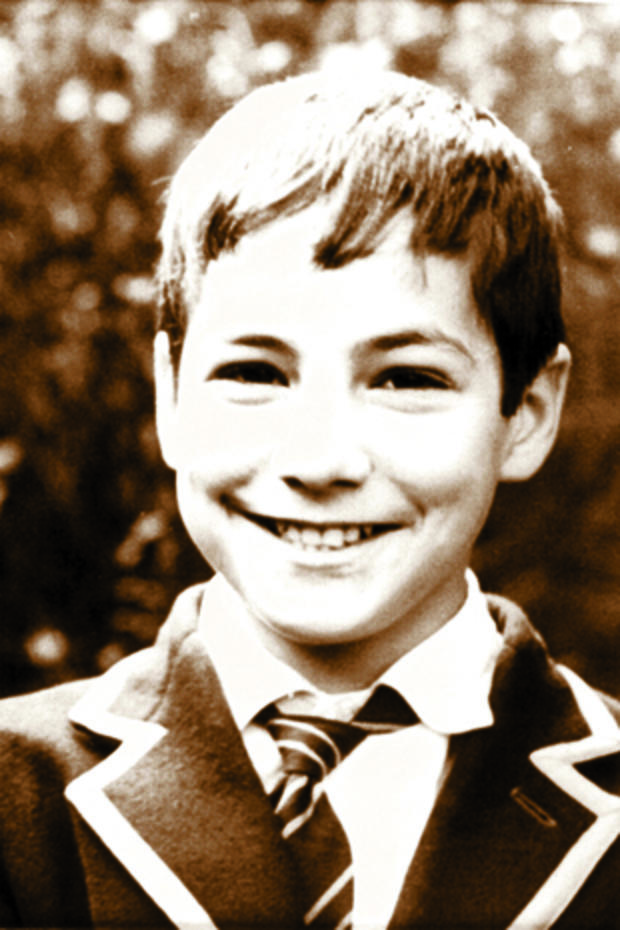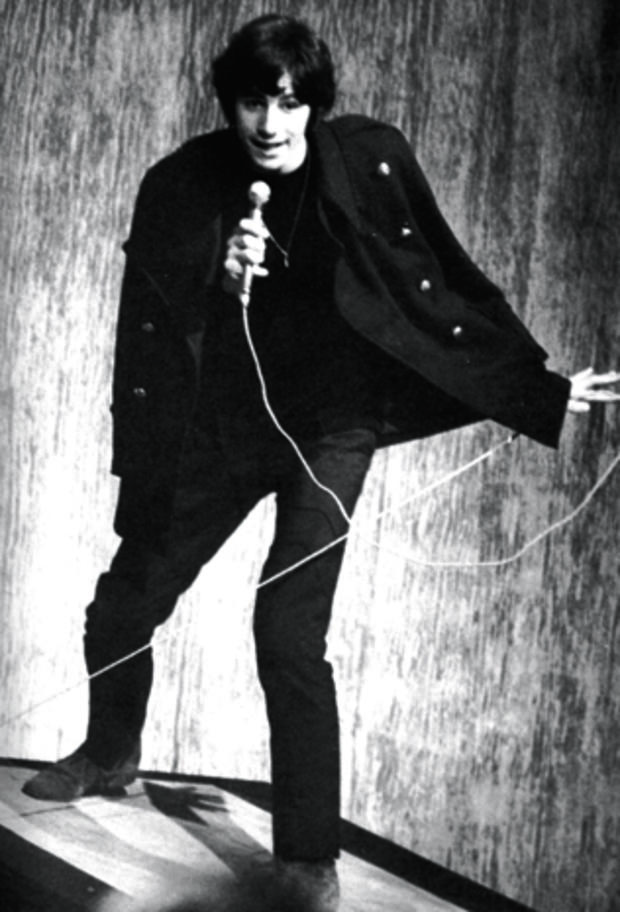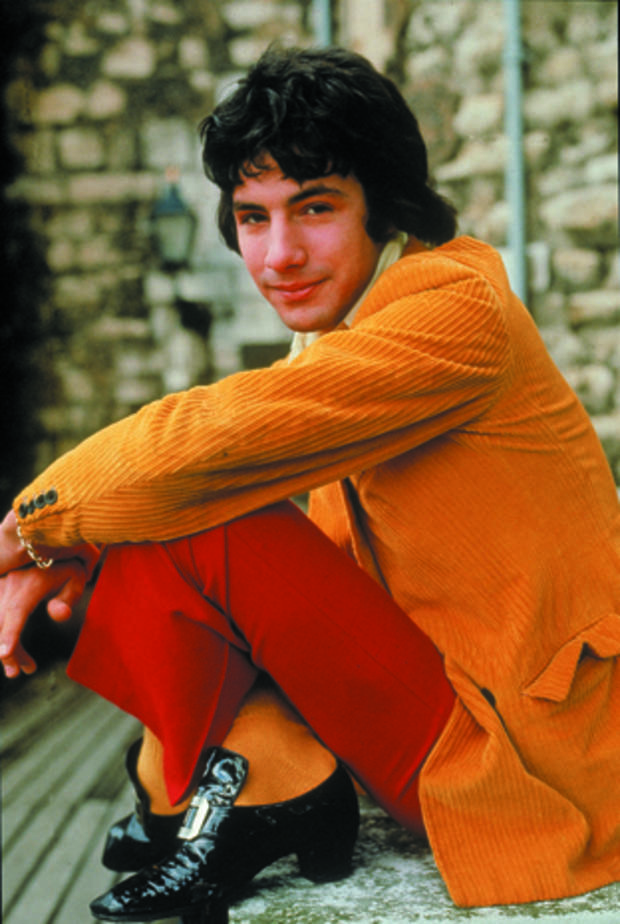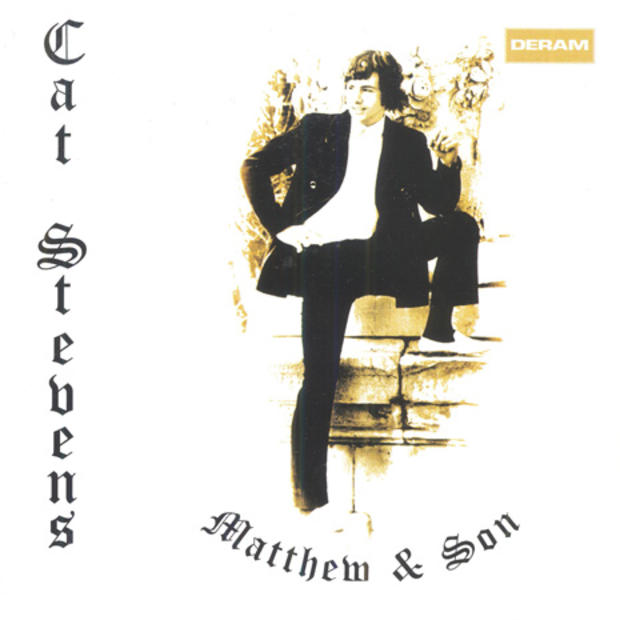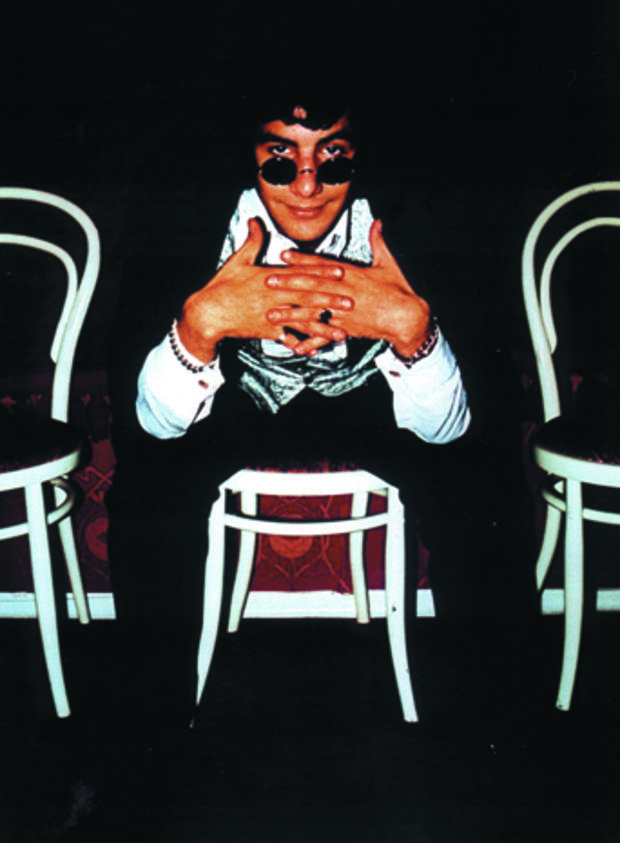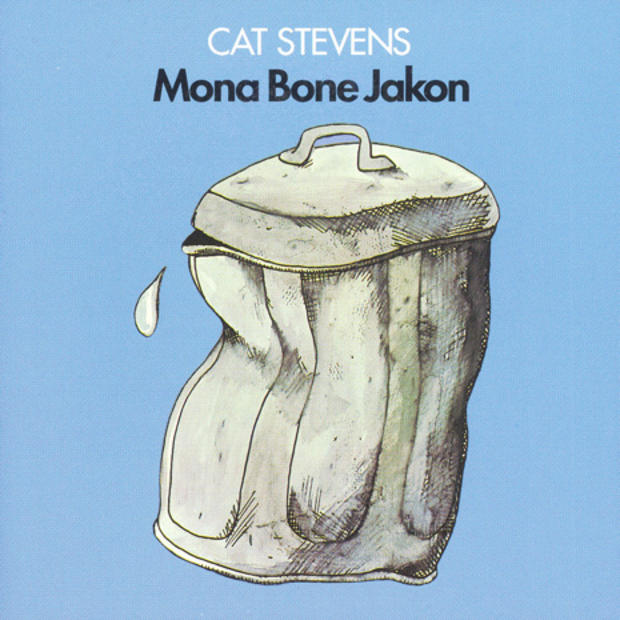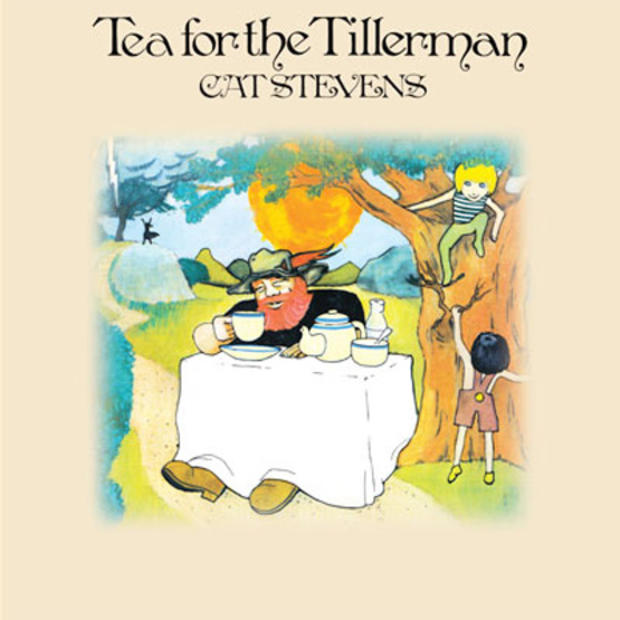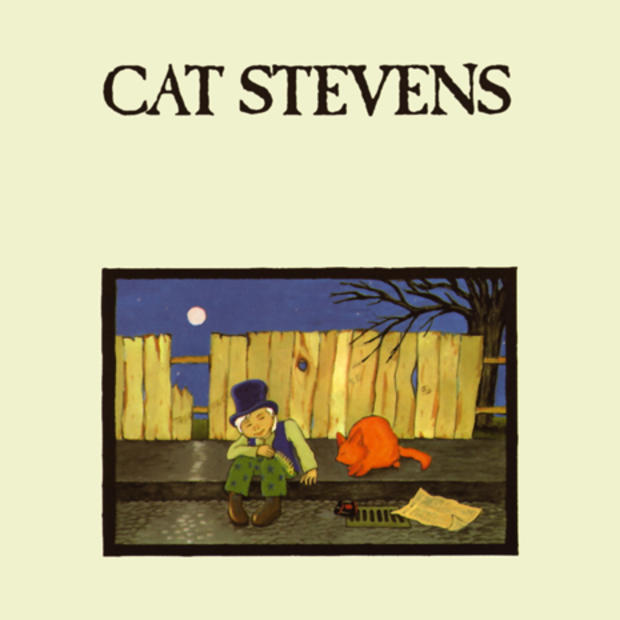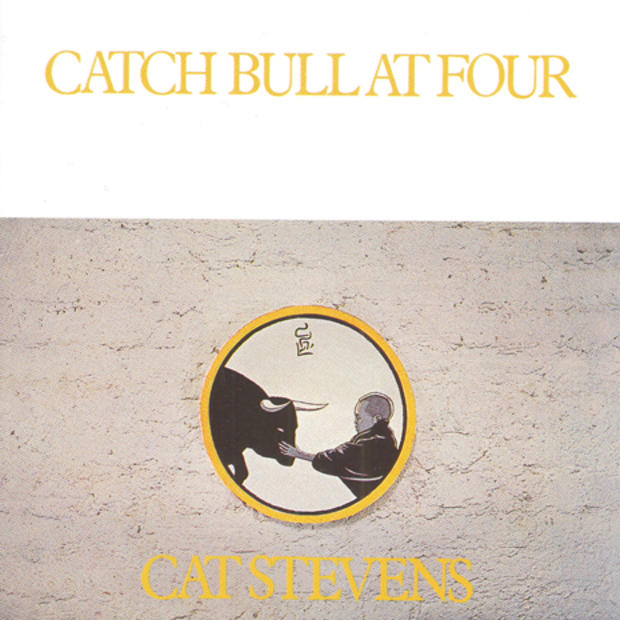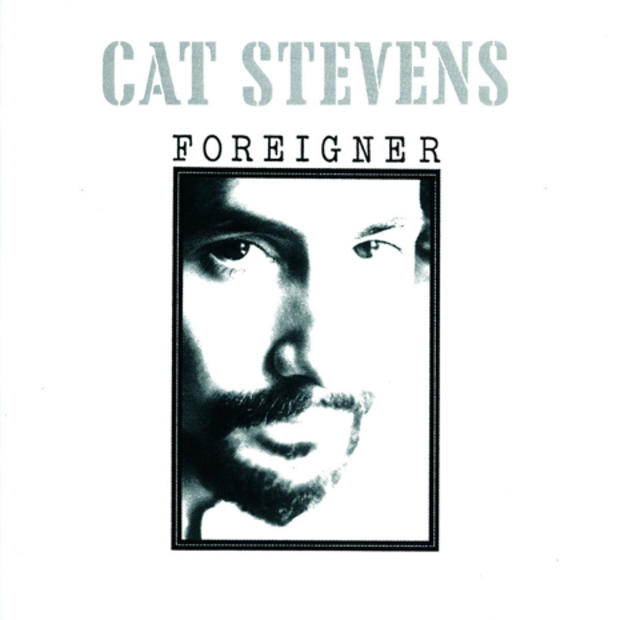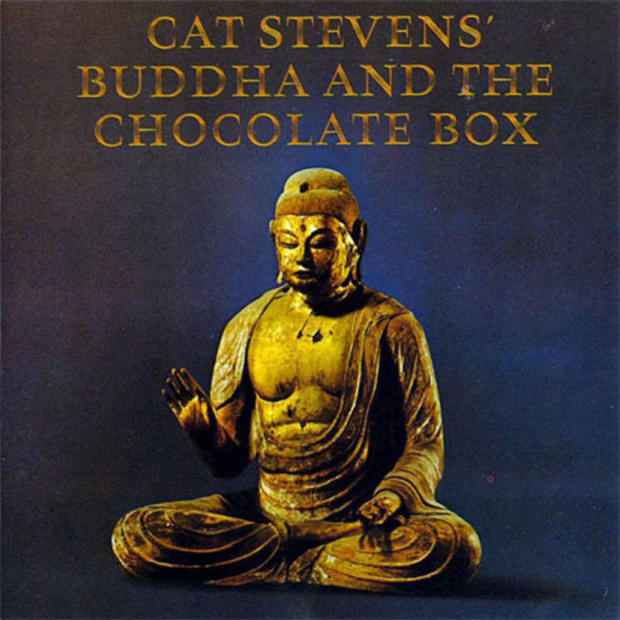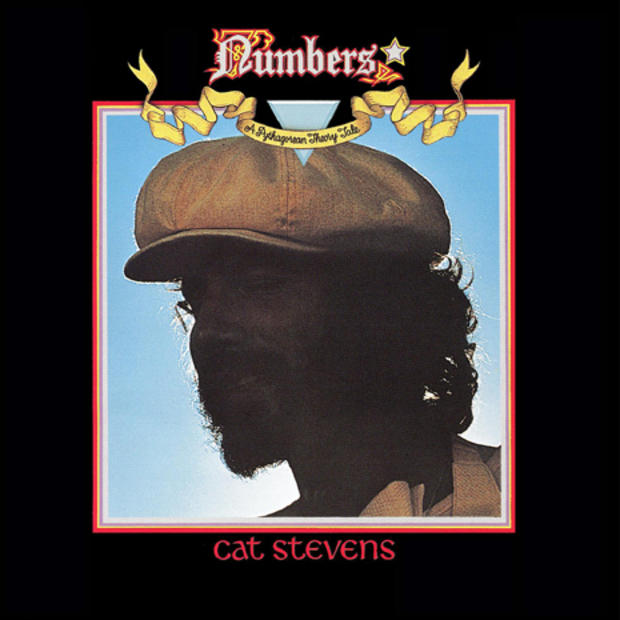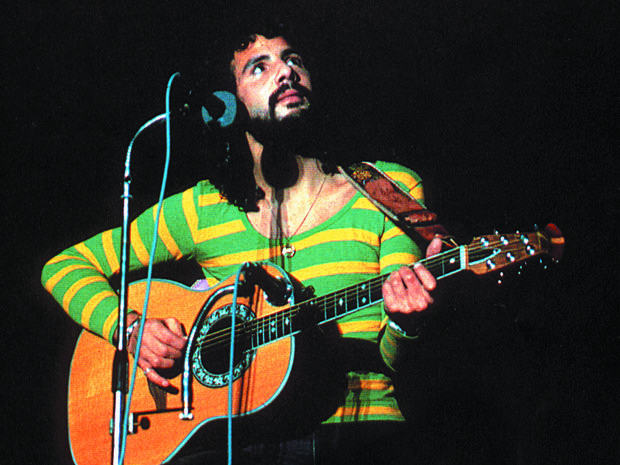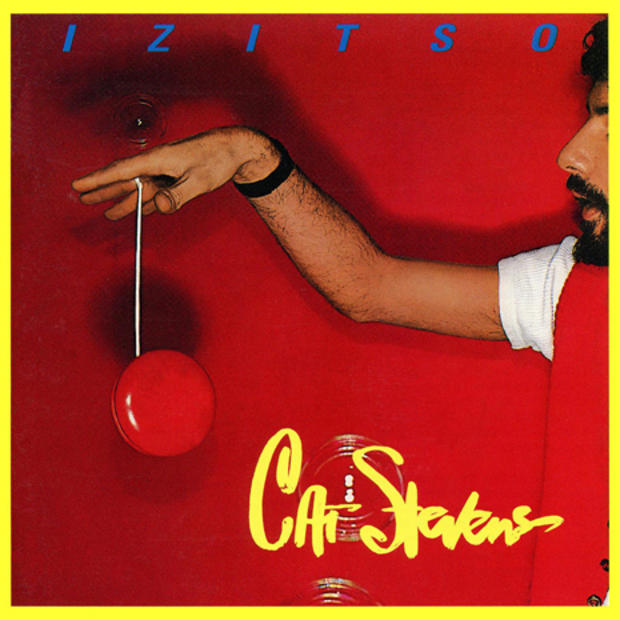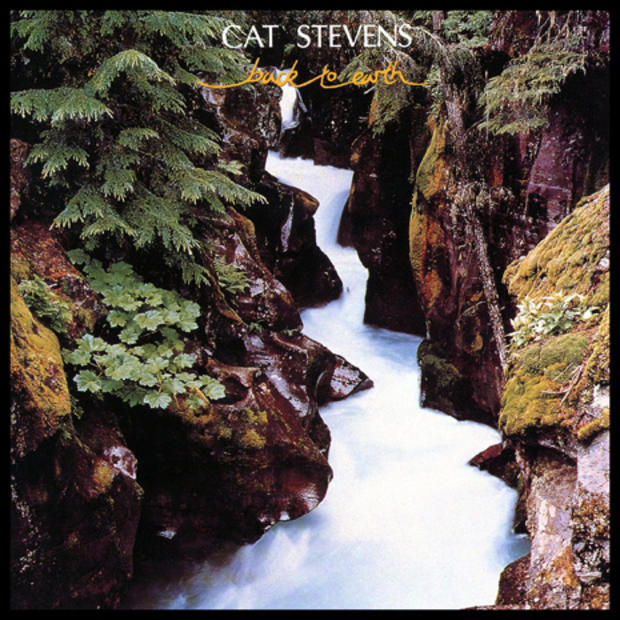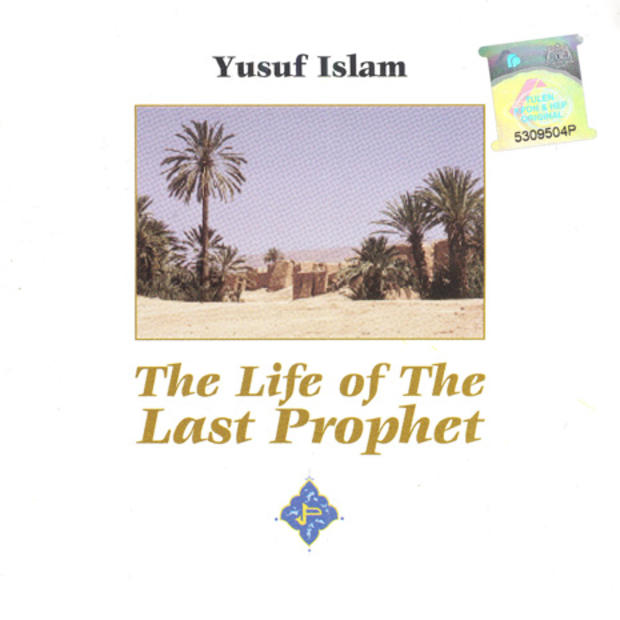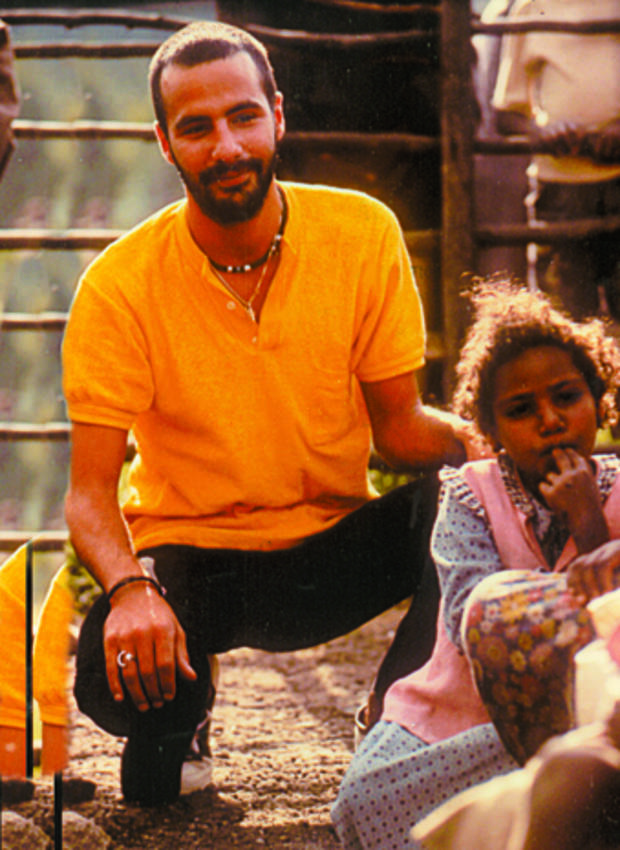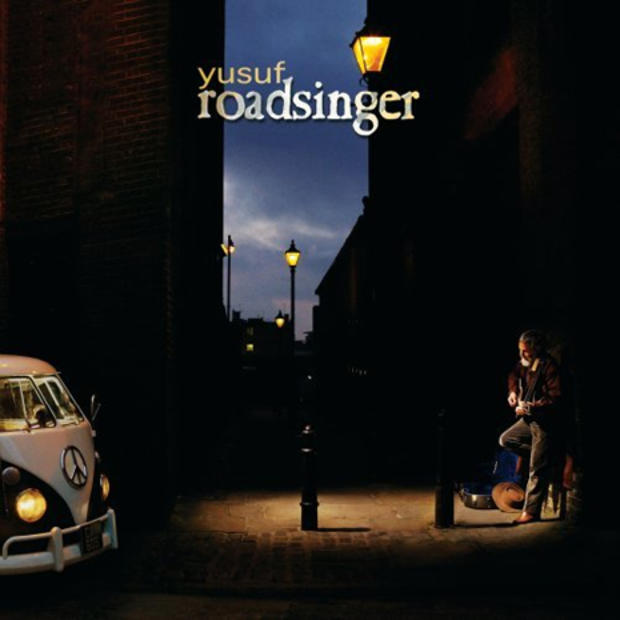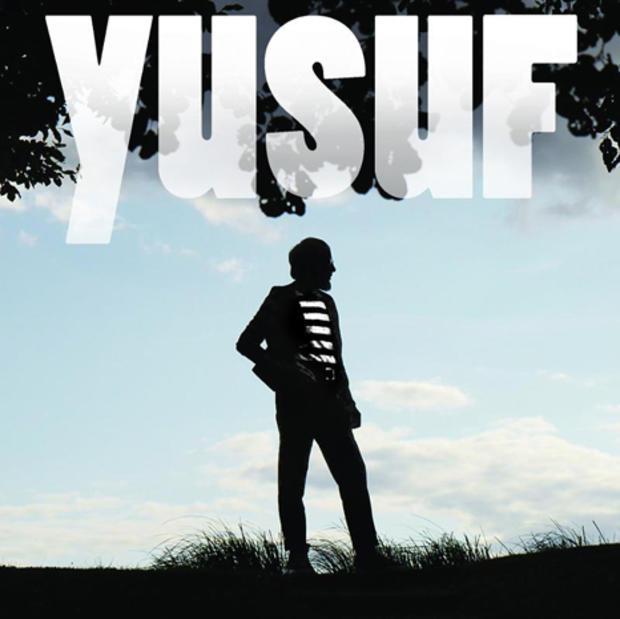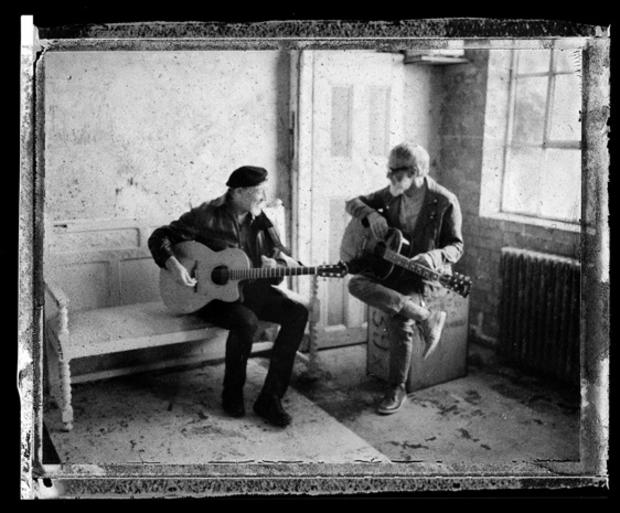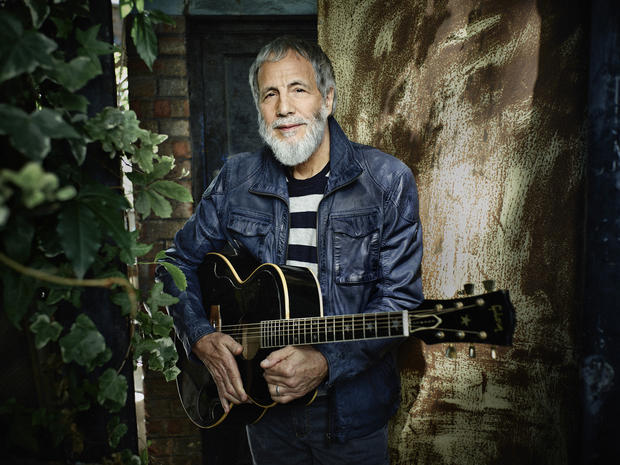The musical journey of Yusuf / Cat Stevens
The singer-songwriter who took the stage name Cat Stevens earned eight gold or platinum albums in the 1970s, before turning his back on the music world when he became a Muslim, changing his name to Yusuf Islam. It would be years before he picked up a guitar again.
Now, Yusuf has returned to music, and to live performance, embarking on his first U.S. tour in 38 years.
In Concert
On Thursday, Dec. 4, 2014, at the Tower Theater in Upper Darby, Pa., Yusuf, the singer who came to fame as Cat Stevens, opened his first U.S. tour since 1976.
"You could fill theatres bigger than this," said CBS News' Anthony Mason.
"Well, yeah, sure. But it's the intimacy I'm looking for. It's not a matter of making money or proving that I can play the big halls," Yusuf replied. "I just wanted to get close to my audience. That's the buzz for me."
A U.S. Tour
"For a while I was trying to get as far away from my past as possible," Yusuf told CBS News' Anthony Mason. "And that's a natural thing when a person, you know, converts or embraces religion. They don't want to know anything else.
"So there's a point where you have to come to a balance, right? And thank God, I've come to that balance today. And so I'm able to be a reflection of my Western upbringing, my lifestyle, and also my faith as a Muslim."
"There need to be more bridges?" Mason asked.
"For sure."
"Do you want to be one of those bridges?"
"I'm naturally a bridge," he said. "Yeah, that's my job."
Portrait
Born Stephen Georgiou in London to a Greek father and Swedish mother, Cat Stevens (his stage name) was a teenager when he began writing songs. The music playing in the coffee bars and jukeboxes of London's West End was a major influence.
"Ready Steady Go"
Cat Stevens as he appeared on the '60s British pop music series, "Ready Steady Go."
Portrait
Left: Cat Stevens in 1967.
"After school, my first gig was on television. I had my first single ["I Love My Dog"] and it became a hit. And from then on, I was on the road. It was my induction, if you like, into the life on the road," he laughed, "with all these other groups, Jimi Hendrix being one of them, you know, starting fires on the stage, and me in the back room there drinking port and brandy with Engelbert [Humperdinck]. And it was all very, very fun-ridden. We had a great time."
"Matthew & Son" (1967)
The songs on Stevens' first folk rock album included "Matthew & Son" and "I Love My Dog" (with both singles hitting the U.S. charts), "I'm Gonna Get Me a Gun," "Here Comes My Baby," and "Portobello Road" (co-written with Kim Fowley). The album reached No. 7 on the U.K. charts.
"Here Comes My Baby" was also covered by (among others) The Tremeloes, The Jags, The Mavericks, Turin Brakes and Elizabeth Mitchell.
"When I got to the point where I had a publisher, then they took those songs and suddenly somebody gave it to the Tremeloes and, 'Wow!' You know, there's, like, a massive hit. Then they started taking me more seriously."
"Matthew & Son" was followed by a second album that same year, "New Masters."
Shades
Cat Stevens in a 1967 portrait.
But, Yusuf told Mason, he "fell prey to the hardships" and worked himself into the ground from a year of touring. He collapsed, suffering from tuberculosis.
"I was in hospital for a long time. I felt like it was years, but it was about three months. And in the same hospital at the same time there happened to be Boris Karloff with TB, too. And he actually died while I was there. Oh, 'This is scary! I've gotta find out a little bit more about what possibly could be behind or beyond this life.' Because, you know, you could drop off any minute."
"Mona Bone Jakon" (1970)
After recuperating from a collapsed lung, Stevens returned with a new label and a more bare, acoustic sound.
"Mona Bone Jakon," his third album, never peaked higher than 164 on the U.S. charts, but it was certified gold, thanks in part to three tracks ("Trouble", "I Wish, I Wish", and "I Think I See the Light") being featured on the soundtrack of the Hal Ashby film, "Harold & Maude" – and to the phenomenal success of Stevens' follow-up, "Tea For the Tillerman."
"Tea For the Tillerman" (1970)
Stevens' 1970 album - certified triple platinum in the U.S. - introduced such classics as "Wild World," "Hard Headed Woman," "Where Do the Children Play?," "Miles from Nowhere," "Father and Son," and "On the Road to Find Out."
Like "Mona Bone Jakon," several songs were also featured in "Harold & Maude."
"Teaser and the Firecat" (1971)
"Teaser and the Firecat" was Stevens' first U.K. Gold album. Songs included the #1 hits "Peace Train" and "Morning Has Broken," as well as "Moonshadow."
The following year, Stevens published a children's book, also called "Teaser and the Firecat."
"Catch Bull at Four" (1972)
The first of his albums to hit Number 1 on Billboard, "Catch Bull at Four" featured the hits "Can’t Keep It In" and "Sitting."
"Foreigner" (1973)
"Foreigner" was more influenced by R&B than his previous works.
Recorded in Jamaica, the entire Side 1 of Stevens' "Foreigner" is taken up with an 18-minute "Foreigner Suite." The album also featured "The Hurt" and "1001 Dreams."
"Buddha and the Chocolate Box" (1974)
As the tile suggests, this is a more spiritually-tinged album than Stevens' previous works. Songs include "Oh Very Young," "Ready," "Ghost Town" and "Home In the Sky."
"Numbers" (1975)
Subtitled "A Pythagorean Theory Tale," this concept album takes place on a mythical planet, where the natural order of rational numbers begins to break down.
Songs include: "Banapple Gas," "Whistlestar," "Jzero" and "Drywood." And joining Stevens for vocals on the album were Art Garfunkel and the Magic Children of Ottawa.
London
In December 1976 Cat Stevens played the Albert Hall in London. He returned as Yusuf Islam to play the Albert Hall again in 2009.
"Izitso" (1977)
Stevens returned after "Numbers" with an electronic/pop rock album, "Izitso," that reached No. 7 on the U.S. Billboard chart and was certified Gold in the U.S. and Canada.
Songs included "(Remember The Days of the) Old School Yard," "Sweet Jamaica," "Was Dog a Doughnut?" "Child for a Day,"
Charley Walters of Rolling Stone praised Stevens' blend of electronics and soft acoustics, and for displaying "both the diversity and the maturity to match this seeming incongruity."
"Back to Earth" (1978)
In December 1977 Cat Stevens converted to Islam, and would soon change his name to Yusuf Islam. As he was still contractually obligated to provide one more Cat Stevens album to Island/A&M, "Back to Earth" went out under his former name.
But the content of the album reflected a more melancholy, spiritual side, as well as bitterness about the music industry. Songs included "New York Times," "Bad Brakes," "Just Another Night," "Last Love Song," and "Never" - whose lyrics presaged his break from music (and later return):
"I know there'll be another time
There's going to be another moment …
I know there'll be another spring
And it won't always be winter
And it'll always be spring
There's going to be another story
There's so much left for you to know love."
Yusuf told Mason that he decided to walk away from the music industry because "there were just too many corruptive things. ... Ah, it's a circus. And a lot of it's to do with competition, greed, and sex, drugs, rock 'n' roll. So therefore, I needed to get out."
"The Life of the Last Prophet" (1995)
In 1995 his first recording under the name Yusuf Islam was released. A spoken word album, "The Life of the Last Prophet," explores his calling to Islam.
UNICEF
After converting to Muslim, he continued his work as a Goodwill Ambassador for UNICEF.
But even though he'd left music, music did not leave him. "Even then, as I started embracing a new life, people wanted me to talk, and then they wanted me to sing a song," he told Mason. "And gradually, I realized, 'I'd better write some music!' And I did.
"I wrote a song when I had my first child, born in 1980. I wrote a song called 'A is for Allah.' I started making records for children. And it went on from there."
"A is for Allah" (2000)
The product of this return to music composition is his album, "A is for Allah," a children's record in which songs teach the letters of the Arabic alphabet.
Yusuf followed with several other albums of both spoken word and music, including the children's record, "I Look I See."
"Footsteps in the Light" (2006)
In this compilation album, Yusuf Islam revisited many of the songs written both following his conversion and before, creating a blend of Western and Middle Eastern sounds. Songs include the Cat Stevens-era "Peace Train," "Wild World" and "The Wind," and later songs "The White Moon," "The Adhan (Call to Prayer)," and "God Is the light."
"An Other Cup" (2006)
His first Western pop album since the 1970s, Yusuf was identified on the album cover as "the artist formerly known as Cat Stevens."
He re-recorded his own "Heaven/Where True Love Goes" (taken from his "Foreigner Suite") and "I Think I See the Light" (from his third album, "Mona Bone Jakon"), and also covered the 1960s blues hit, "Don't Let Me Be Misunderstood."
Also featured on "An Other Cup" is Senegalese singer Youssou N'Dour.
"Roadsinger" (2009)
On his second Western pop album as Yusuf / Cat Stevens, the singer's "Everytime I Dream" explores the criticism he received after he was falsely accused by Western media of supporting the Ayatollah Khomeni's fatwa against "Satanic Verses" author Salman Rushdie.
"Every time I dream I would often
find myself running from a wild pack of lies
Till I reach your house and I hear the judge upstairs
And look for a place to hide."
"Tell 'Em I'm Gone" (2014)
Performing under the name Yusuf / Cat Stevens, his latest album, "Tell 'Em I'm Gone," includes songs that were an inspiration to his musical development.
"The crop of songs which I chose for this album, I kind of liked for eclectic [reasons] - no big purpose about it all, but they were songs that I loved," he told Mason. "Edgar Winter's song, 'Dying to Live,' it's a beautiful song. I used to play that consistently when I was on tour in the '70s. I loved that song. I wanted more people to know about that song; I don't think enough knew about it.
"'You Are My Sunshine,' it's a great song [that] goes back to the '30s. But actually, I remember it 'cause of Ray Charles. It was his blues take on that song that I wanted to reflect. Other songs are really to do with the climb for freedom and slavery - which, to be honest, is still in the world today."
Yusuf / Cat Stevens
Yusuf / Cat Stevens with rock/blues guitarist Richard Thompson, who performs on Yusuf's new album, "Tell 'Em I'm Gone."
Yusuf / Cat Stevens
"Life is full of decisions," Yusuf said. "And the more you try to buffer changes, the more, I think, you find yourself stagnant and, in a way, losing the plot. Because we've got to explore.
"As children, the first thing we do is explore. The first thing we do is to try and find out, 'Hey, is that fire hot? Oh! Yes, it is!'
"If we don't make some mistakes, we'll never experience enough. And we do need to keep on progressing and finding out more. And that's what I've tried to do through my life, through my actions, through my work, through charity, through education and through music."
For more info:
"Tell 'Em I'm Gone" by Yusuf / Cat Stevens (Sony Legacy); Available via Amazon, Barnes & Noble and iTunes
Yusuf / Cat Stevens' official website
Follow @YusufCatStevens on Twitter, Facebook and YouTube
By CBSNews.com senior producer David Morgan
